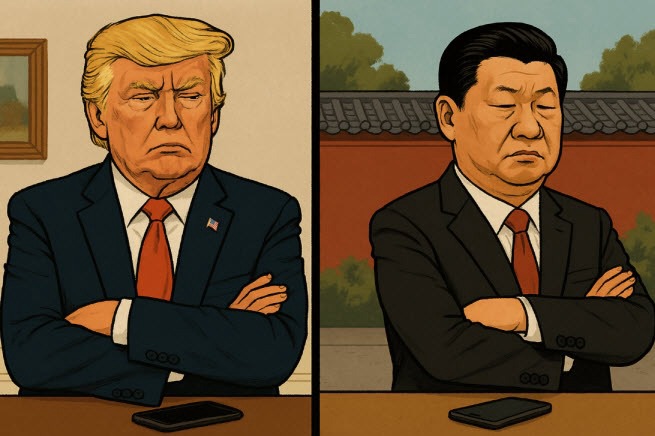
June 10, 2025 — Diplomatic talks between the United States and China have continued into a second week, with both governments reporting signs of progress on key issues ranging from trade and technology to military communication and climate cooperation.
The meetings, held in Beijing and led by senior officials from both countries, have been described by participants as “constructive” and “pragmatic.” While concrete agreements have yet to be announced, the tone and content of the discussions suggest a notable shift away from confrontation toward cautious engagement.
A Measured Thaw in Relations
The talks come amid a prolonged period of tension between the world’s two largest economies, exacerbated by disputes over tariffs, semiconductor technology, Taiwan, and cybersecurity. However, both nations appear increasingly aware of the global risks posed by continued friction—especially at a time when international markets remain volatile and geopolitical rivalries have intensified.
In a joint statement released late Monday, the U.S. State Department and China’s Ministry of Foreign Affairs acknowledged “meaningful dialogue on critical issues” and expressed a mutual desire to “manage differences responsibly and prevent competition from veering into conflict.”
Focus on Key Sectors
Sources familiar with the negotiations said several areas have seen encouraging signs of progress:
Trade and Tariffs: Talks included potential easing of some tariffs imposed during the Trump administration, with the aim of stabilizing supply chains and reducing costs for consumers in both countries. Technology and AI: The two sides began early-stage discussions on setting basic guardrails for artificial intelligence development and cyber defense, though differences remain over intellectual property protections and data security. Military Communication: Restarting direct communication channels between military leaders has been a priority for Washington, especially in light of recent close encounters in the South China Sea. Chinese officials indicated a willingness to re-engage, contingent on reciprocal moves by the Pentagon. Climate Cooperation: With global climate deadlines looming, China and the U.S. recommitted to a working group on clean energy innovation, with plans to coordinate on methane emissions, battery technologies, and carbon capture.
Domestic Pressures and Diplomatic Calculations
Analysts suggest that domestic concerns in both countries are partly driving the renewed diplomatic effort. President Joe Biden faces a tough re-election campaign later this year, with inflation and economic uncertainty high on voters’ minds. Improved relations with China—especially if they bring down consumer prices—could bolster his economic narrative.
China, meanwhile, continues to grapple with a sluggish post-COVID economic recovery, a declining real estate market, and growing international scrutiny over its alignment with Russia. Stabilizing ties with the U.S. may help Beijing regain investor confidence and avert further economic headwinds.
Still Far From a Breakthrough
Despite the improved tone, experts caution that the path forward remains complex. “This is not a reset or a breakthrough,” said Dr. Mei Lin, a senior fellow at the Asia-Pacific Policy Institute. “But it is a pause in hostilities, and sometimes that’s the most you can hope for in geopolitics.”
Human rights, Taiwan’s status, and the future of U.S. export controls on advanced semiconductors remain contentious points likely to test the limits of cooperation.
What’s Next?
The next round of meetings is expected to take place in Washington later this month, with Secretary of State Antony Blinken hosting his Chinese counterpart. Observers will be watching closely to see whether these early signals of progress can translate into lasting diplomatic architecture.
In the meantime, markets have responded cautiously, with Asian indices seeing modest gains and the yuan stabilizing slightly against the dollar.
While the broader US-China rivalry is far from resolved, the latest diplomatic efforts mark a possible turning point—one that prioritizes dialogue over disruption. For a world increasingly defined by fragmentation and uncertainty, even incremental progress is welcome.
